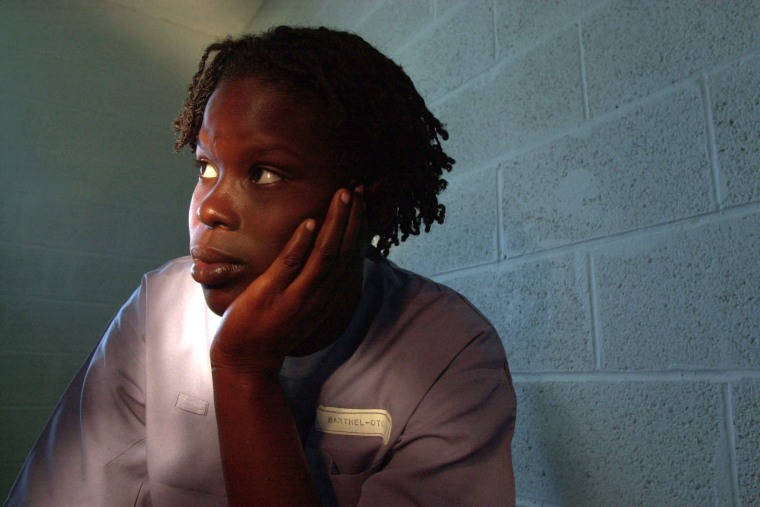Convicted killers sentenced as teenagers to serve life in prison will now get a second shot at freedom.
In a 6-3 ruling, the Supreme Court on Monday found that its 2012 decision in Miller v. Alabama barring life imprisonment without parole for juveniles must be applied to cases retroactively. This means that hundreds of prisoners who were convicted as teens are now entitled to be re-sentenced or to argue for parole.
The case was brought by Henry Montgomery, who was 17 years old when he was convicted of murdering a deputy sheriff in Louisiana. Montgomery, now 70, was sentenced to life in prison without parole.
That was in 1963. Half a century later, the Supreme Court decided that teens shouldn’t face mandatory life sentences on homicide convictions without the opportunity of parole. And on Monday, the Court decided that prisoners like Montgomery, sentenced decades ago, are now eligible to argue for release.
“Prisoners like Montgomery must be given the opportunity to show their crime did not reflect irreparable corruption; and, if it did not, their hope for some years of life outside prison walls must be restored,” Justice Anthony Kennedy wrote in the Court’s majority opinion.
The decision is yet another example of a softening approach toward sentencing, including in cases of violent crime, throughout the country as lawmakers and presidential candidates promote criminal justice reform as a new priority. The courts, too, have eased away from excessive punishment while questioning whether even the most deranged of teenage killers should be tried in the same manner as adults.
The Supreme Court last addressed the issue in 2012 when it decided in Miller v. Alabama that juveniles should not be treated with the same degree of culpability as adults. The Court had previously decided that teenagers, no matter how violent or deranged in their crimes, should not face the death penalty. But in Miller, the Court found that sentences without parole were no longer mandatory for juvenile homicide convictions.
RELATED: US Supreme Court rejects plea to revive North Dakota abortion ban
A report released last fall by the nonprofit group Phillips Black found that 2,300 juveniles are carrying out life sentences without the option of parole nationwide. Nine states opted to abandon the practice since the Court’s 2012 ruling. Still, prior to Monday's decision, some seven other states had decided that the Court’s decision did not apply retroactively.
According to the report, nearly a quarter of all juvenile life sentences have been concentrated in just five counties: Philadelphia, Los Angeles, Orleans, Cook and St. Louis counties. These are notably urban areas where minority communities dominate entire neighborhoods.
The disparities tie into the broader trend that a black teenager arrested for homicide is twice as likely to be sentenced to life in prison without parole than if he were white. According to Phillips Black, all of Texas’ population of juveniles carrying out life sentences without parole are people of color. In Pennsylvania, it’s closer to 80%.
John Mills, principal attorney at Phillips Black, said in a statement Monday that it’s now crucial for the court to answer the broad question at stake: does sentencing a juvenile to die in prison amount to cruel and unusual punishment?
“Until the Court answers that question, a small handful of outlier counties will continue to impose sentences that most of the country has abandoned,” Mills said in the statement.
The Court will have the chance to address that question in two cases up for consideration for the upcoming spring term -- Houston v. Utah and Jacobs v. Louisiana -- both of which bring up whether harsh penalties for juveniles violate the Eighth Amendment. Petitioners for Houston and Jacobs hope that the Court will build on its previous decisions and find that life sentences, not just the ones denying parole, will also be found unconstitutional.
Banning life sentences for juveniles entirely would be significant step in reshaping how the judicial system treats its most heinous crimes, even if they’re committed by teens.
Three justices broke from the majority in Monday’s decision. In his dissent, Justice Antonin Scalia’s language was laced in sarcasm, lashing out at the majority for plotting a “devious way” to eliminate life without parole for juveniles.
“And then, in Godfather fashion, the majority makes state legislatures an offer they can’t refuse: Avoid all the utterly impossible nonsense we have prescribed by simply ‘permitting juvenile homicide offenders to be considered for parole,’” Scalia wrote. “Mission accomplished.”
